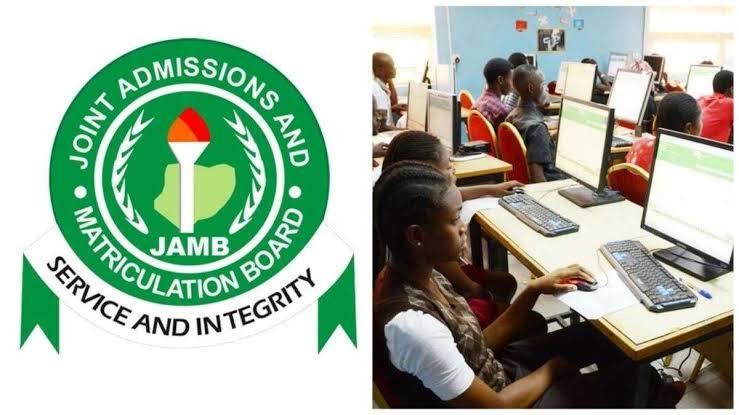Borno State, situated in the northeastern part of Nigeria, is often associated with its long-standing battle against insurgency and the devastating humanitarian crises that followed. Despite these challenges, Borno has remained a focal point of development conversations, especially regarding how the state manages its financial resources. State allocations play a pivotal role in the state's recovery and developmental roadmap, providing the critical lifeline needed to rebuild infrastructure, restore livelihoods, and support displaced populations.
This blog post explores in detail everything about state allocations for Borno State — including the structure of Nigeria's revenue allocation system, the specific figures for Borno, budget performances, and the socio-economic impacts these financial inflows have generated over the years.
Understanding Nigeria’s Revenue Allocation System
Before delving into Borno State’s allocations specifically, it is essential to understand the broader structure of Nigeria’s revenue allocation mechanism. Nigeria operates under a federal system where revenues collected at the federal level — including oil revenues, taxes, and customs duties — are shared among the three tiers of government: federal, states, and local governments.
The Federation Account Allocation Committee (FAAC) is responsible for the monthly disbursement of funds to the different tiers of government. This allocation is guided by a legally approved formula which currently stands at:
-
Federal Government: 52.68%
-
State Governments: 26.72%
-
Local Governments: 20.60%
In addition to these general allocations, oil-producing states receive a 13% derivation fund, given the environmental and infrastructural impacts of oil extraction. However, since Borno State is not an oil-producing state, it does not benefit from the 13% derivation, which places it among states that rely heavily on federal distributions and internally generated revenue (IGR).
Borno State’s FAAC Allocations: Key Figures and Trends
Despite the challenges posed by security instability, Borno State has managed to secure significant federal allocations to support its operations and development programs. In 2023, Borno received a total allocation of ₦176.94 billion from the FAAC. This figure placed the state among the top 10 recipients of federal allocations, highlighting the recognition of its peculiar developmental and humanitarian challenges by the federal government.
These funds accounted for 67.32% of the state’s entire revenue for the year, underscoring Borno’s heavy dependence on FAAC as its economic activities remain constrained due to insecurity and the lingering effects of years of insurgency.
Over the years, Borno has strategically used these allocations to stimulate reconstruction, economic rehabilitation, and resettlement programs, which are crucial for restoring normalcy and fostering economic diversification.
Borno State 2024 Budget: A Budget of Recovery and Continuity
Building upon its 2023 financial structure, the Borno State Government presented a ₦584.7 billion budget for 2024, tagged the "Budget of Recovery and Continuity." The budget reflects the state’s determination to sustain developmental momentum, prioritize humanitarian response, and fast-track economic recovery.
Revenue Breakdown
Borno’s 2024 budget is financed from the following key revenue sources:
-
FAAC Statutory Allocations:
Given the state's reliance on federal distributions, statutory allocations remain the largest component of its revenue. -
Internally Generated Revenue (IGR):
The state has taken steps to boost its IGR by improving tax collection systems, encouraging local businesses, and investing in agriculture, commerce, and services. -
Grants and Donations:
Due to its status as a humanitarian hotspot, Borno continues to attract support from international organizations, donor agencies, and the federal government. -
Loans and Financing Instruments:
The government has outlined plans for strategic borrowing to fund infrastructure projects, health services, education, and other critical development sectors.
Expenditure Breakdown
The 2024 budget emphasizes key expenditure areas including:
-
Capital Expenditure:
Over 60% of the budget is dedicated to capital projects such as road construction, rehabilitation of schools and health centers, and housing projects for displaced persons. -
Recurrent Expenditure:
The balance covers salaries, pensions, running costs of government operations, and administrative overheads.
Budget Performance and Transparency Mechanisms
Borno State has demonstrated a commitment to accountability by publishing quarterly budget performance reports, which offer insights into how revenues are deployed across sectors.
In Q2 2023, the state recorded a commendable performance in the area of revenue inflows and recurrent spending. However, delays in capital project execution were noted, primarily due to ongoing security threats, limited capacity, and bureaucratic bottlenecks.
By institutionalizing quarterly reporting and establishing budget monitoring task forces, the state ensures that citizens, stakeholders, and development partners are kept informed, thus promoting transparency and fostering trust.
Socio-Economic Impact of FAAC Allocations on Borno State
Federal allocations, complemented by IGR and donor support, have had profound socio-economic impacts in Borno State. These impacts are visible across key sectors such as:
Infrastructure Development
One of the most visible impacts of state allocations in Borno is the reconstruction of critical infrastructure. Major roads connecting rural communities to urban centers have been rebuilt, while bridges and public buildings destroyed by insurgents are being rehabilitated.
Health Sector Recovery
Borno’s healthcare system, once decimated by conflict, is gradually being revived through the construction of new health facilities, provision of medical equipment, and recruitment of healthcare workers. This has enhanced access to healthcare services, particularly in previously inaccessible rural areas.
Education Restoration
Education, a critical sector heavily disrupted by conflict, has seen substantial investments. The government has prioritized the renovation of destroyed schools, provision of learning materials, and engagement of more teachers. In collaboration with UNICEF and other partners, the state has rolled out programs to ensure out-of-school children return to classrooms.
Economic Empowerment Programs
To stimulate the local economy and reduce unemployment, the government has launched several youth and women empowerment initiatives, providing vocational training, micro-loans, and startup grants. These initiatives aim to reduce dependency on humanitarian aid and stimulate entrepreneurship.
Challenges Facing Borno State’s Fiscal Strategy
Despite these strides, Borno faces several persistent challenges:
-
Insecurity:
Ongoing threats from insurgent groups continue to disrupt project implementation and deter private investment. -
Over-dependence on FAAC:
The state’s limited IGR capacity makes it vulnerable to fluctuations in federal revenue allocations. -
Infrastructure Deficits:
Despite progress, gaps remain, particularly in rural electrification, water supply, and transportation networks.
The Road Ahead
To overcome these challenges, the state government is adopting the following approaches:
-
Strengthening Security Collaboration:
Working closely with the federal government and international partners to sustain peace efforts and protect investments. -
Promoting Economic Diversification:
Boosting agriculture, livestock farming, and small-scale industries to expand the state’s IGR base. -
Encouraging Public-Private Partnerships (PPPs):
Creating an enabling environment for PPPs, especially in housing, energy, and transportation sectors. -
Strengthening Transparency and Fiscal Reforms:
Continuing to promote open budgeting, improve tax administration, and enforce fiscal discipline to optimize resources.
Conclusion
Borno State’s allocation and budget management story is a testament to resilience amid adversity. Through strategic use of federal allocations, complemented by IGR, grants, and loans, the state has made tangible progress in rebuilding its social and economic infrastructure. While security challenges and fiscal vulnerabilities persist, Borno's proactive fiscal policies and emphasis on transparency offer hope for sustainable development and a brighter future for its citizens.

















